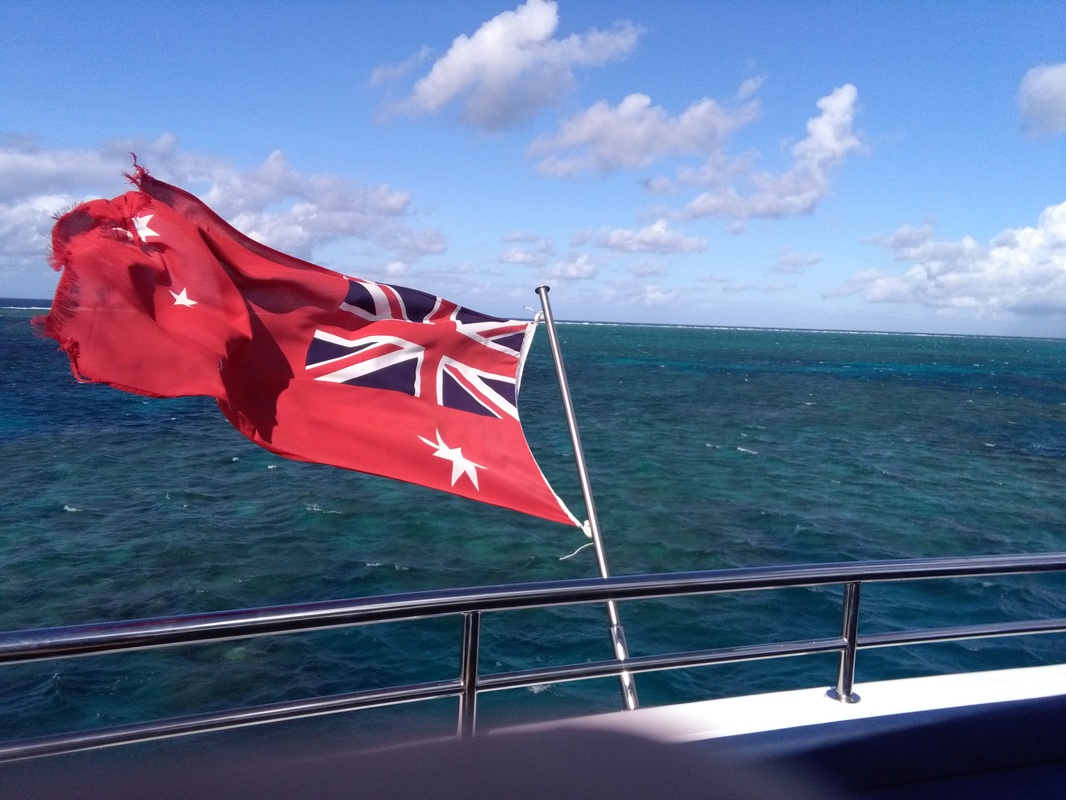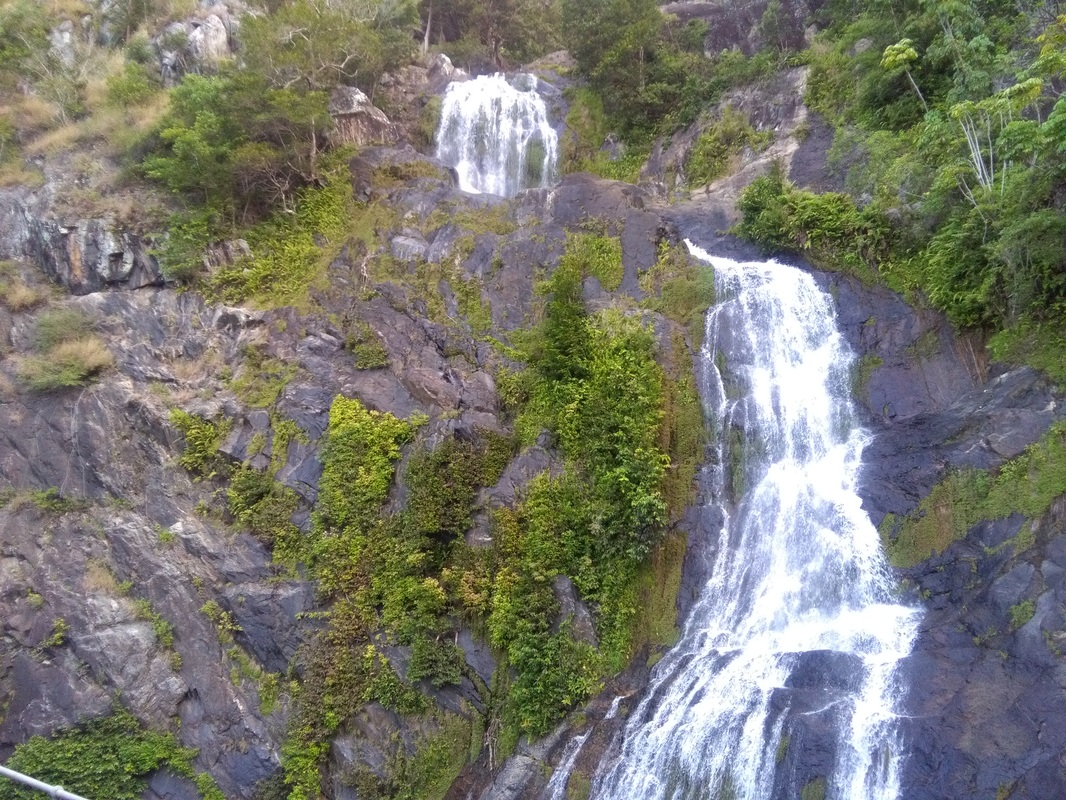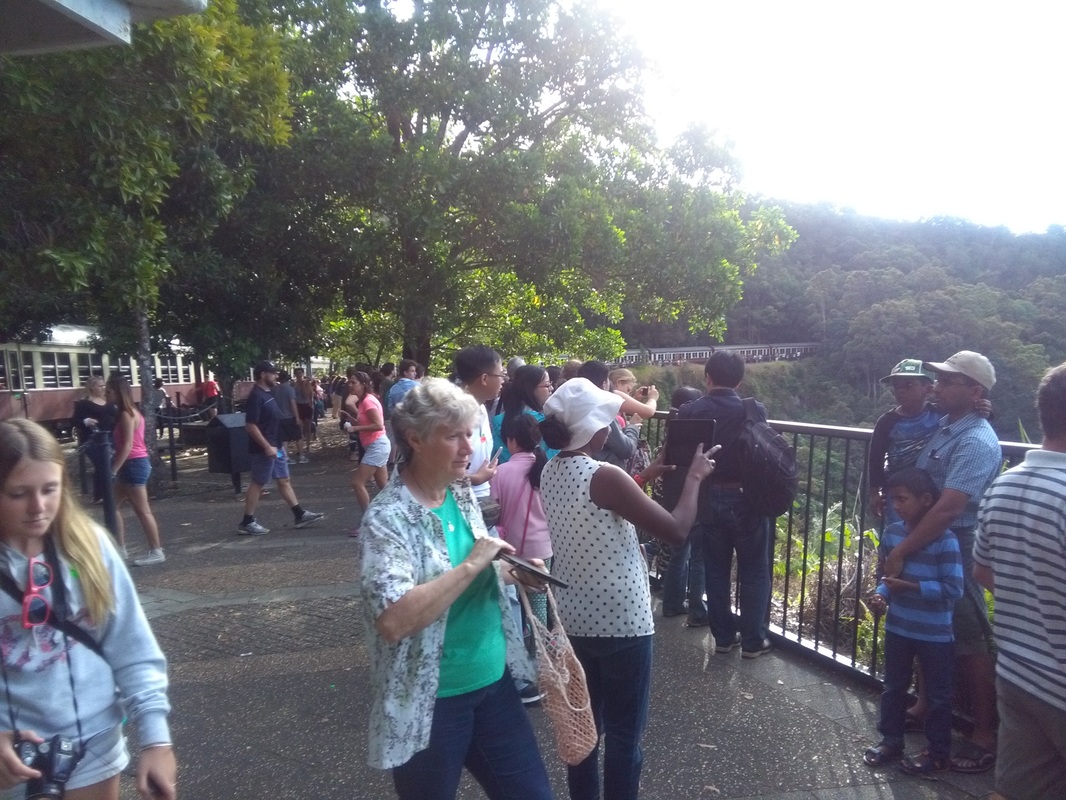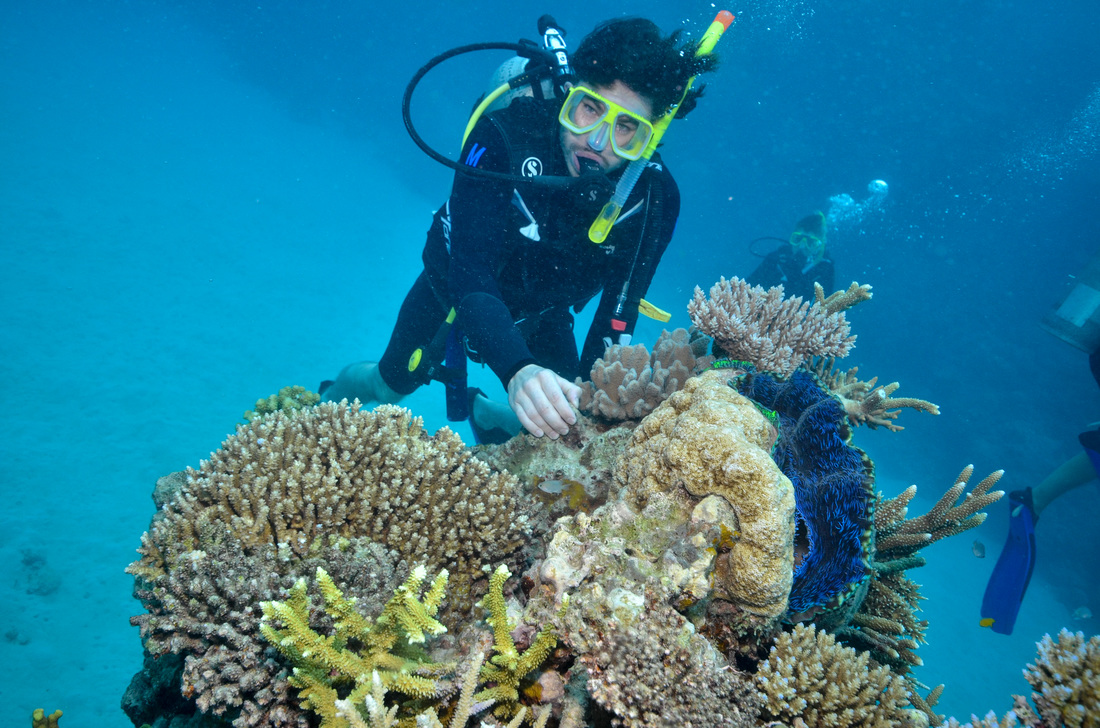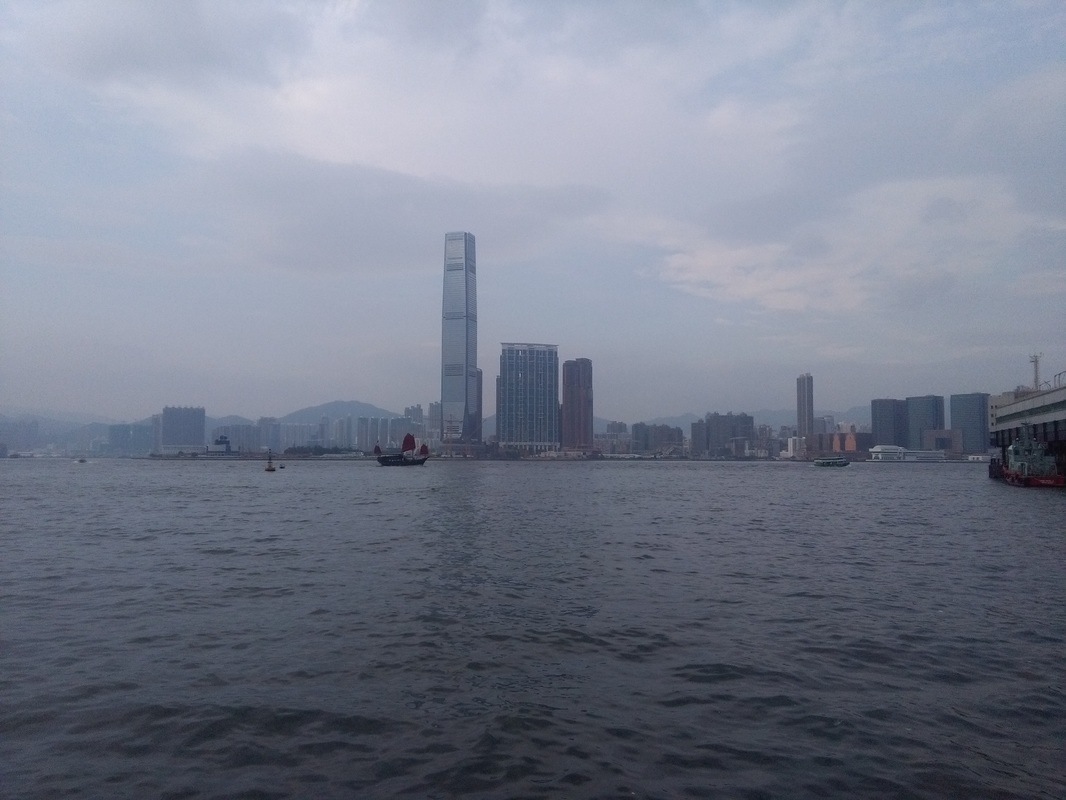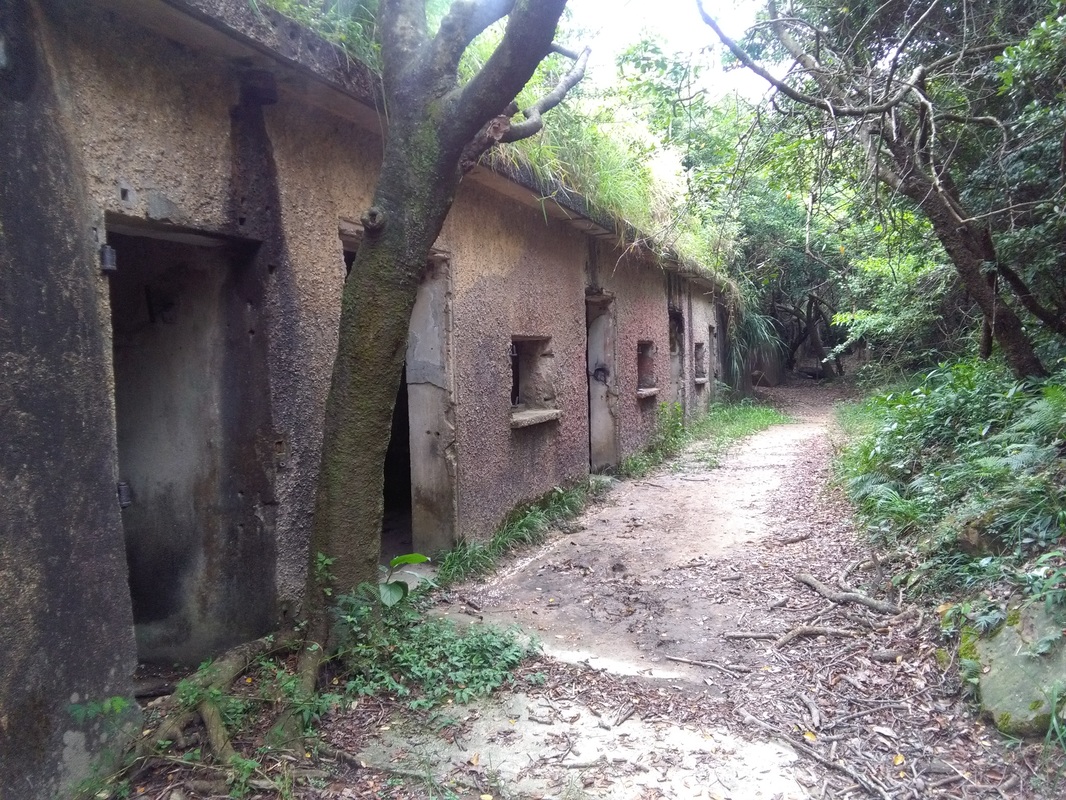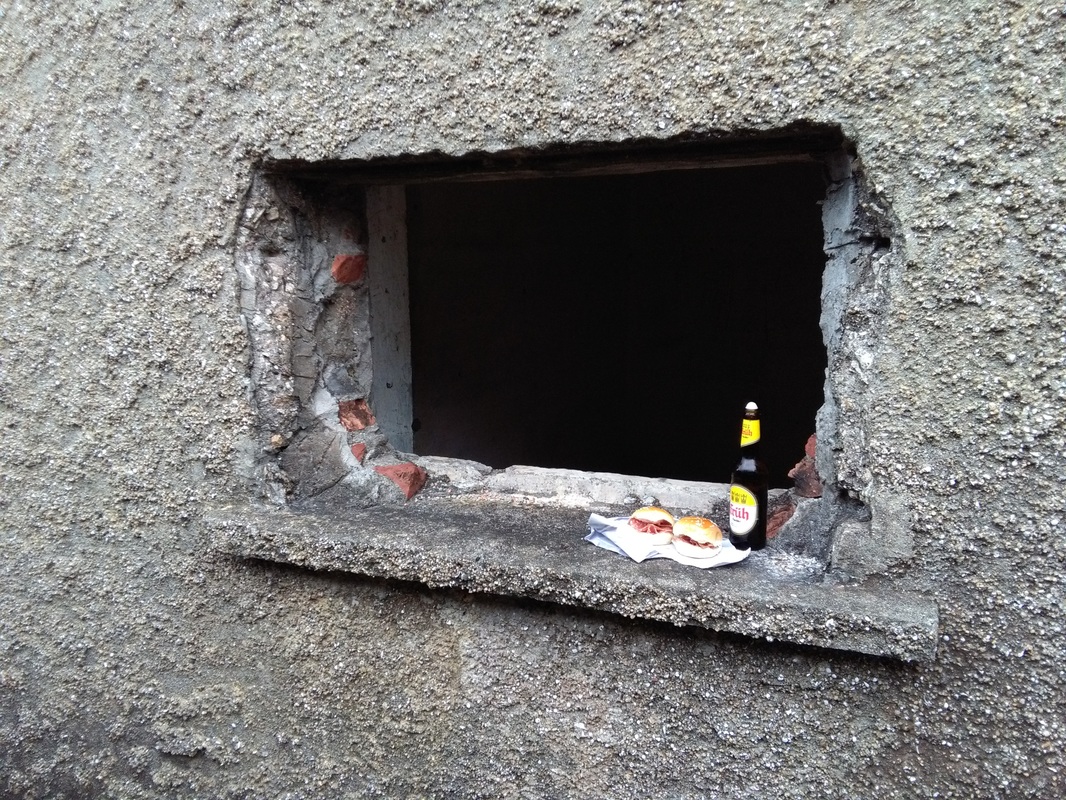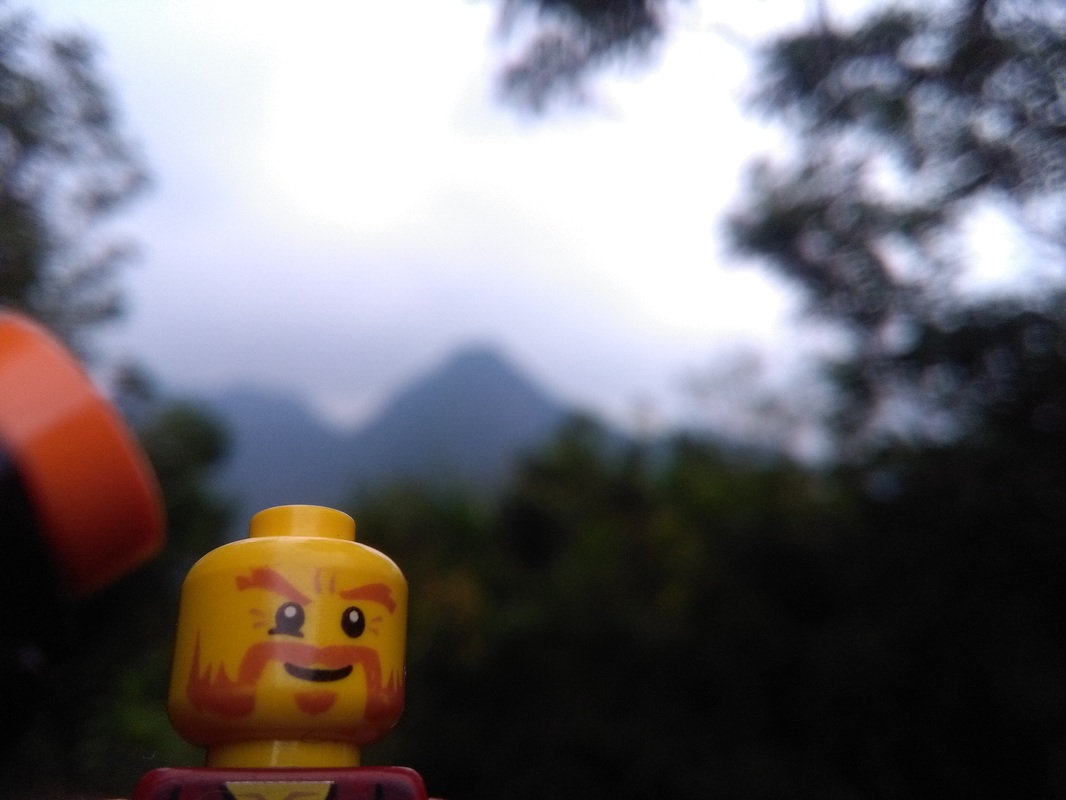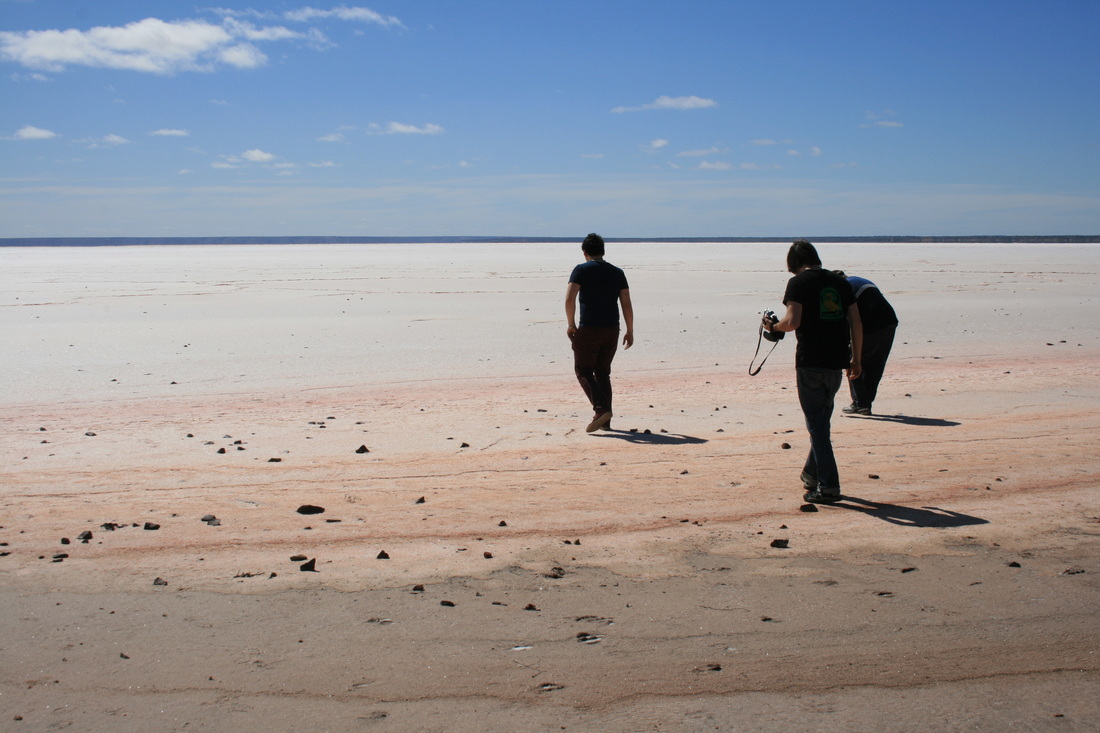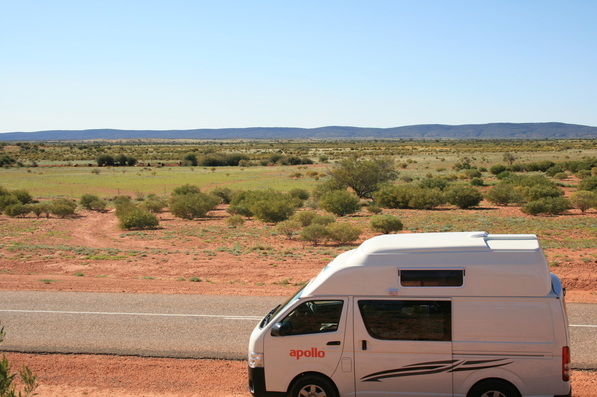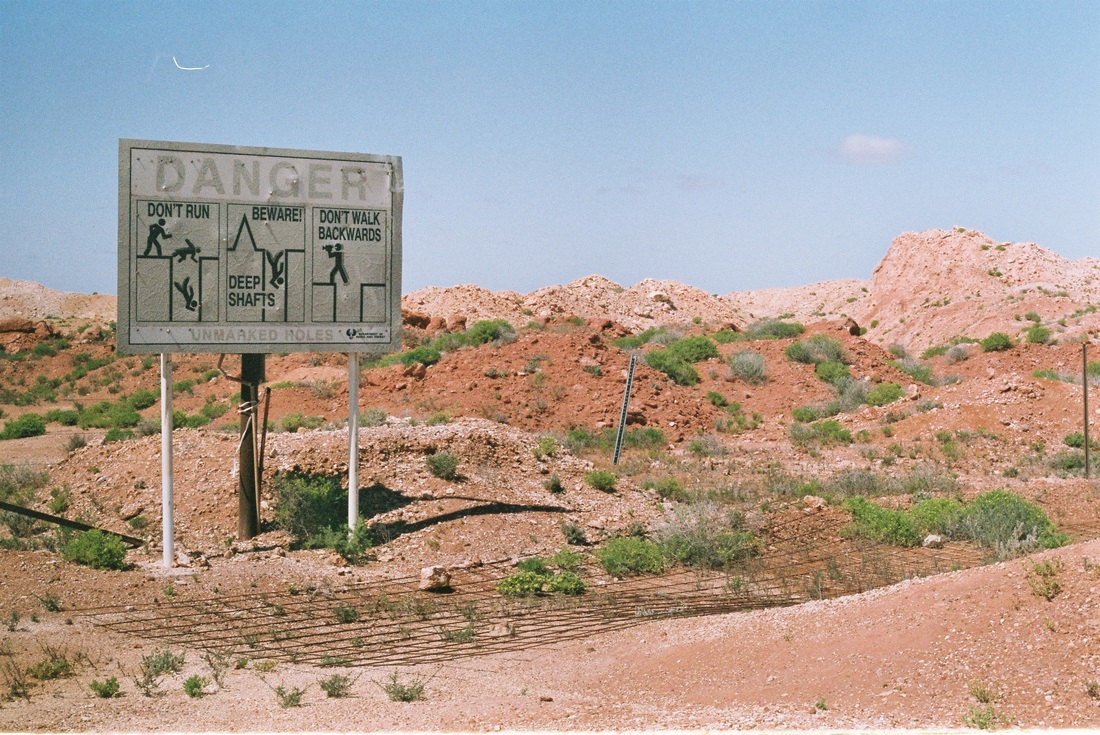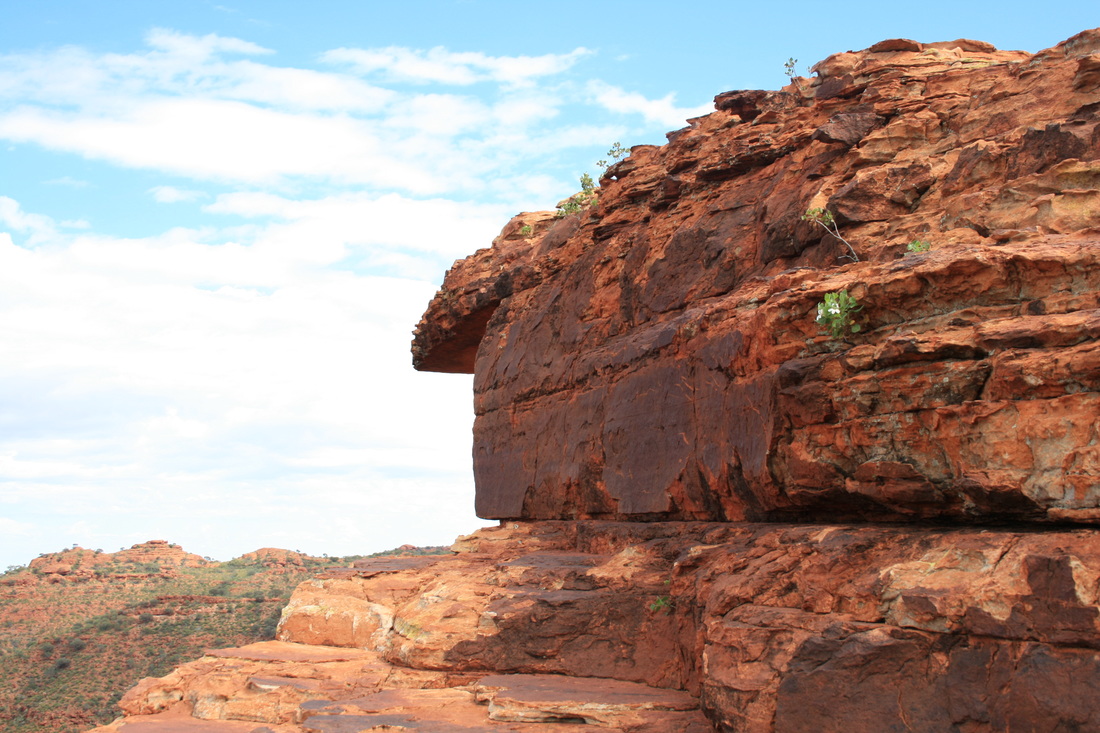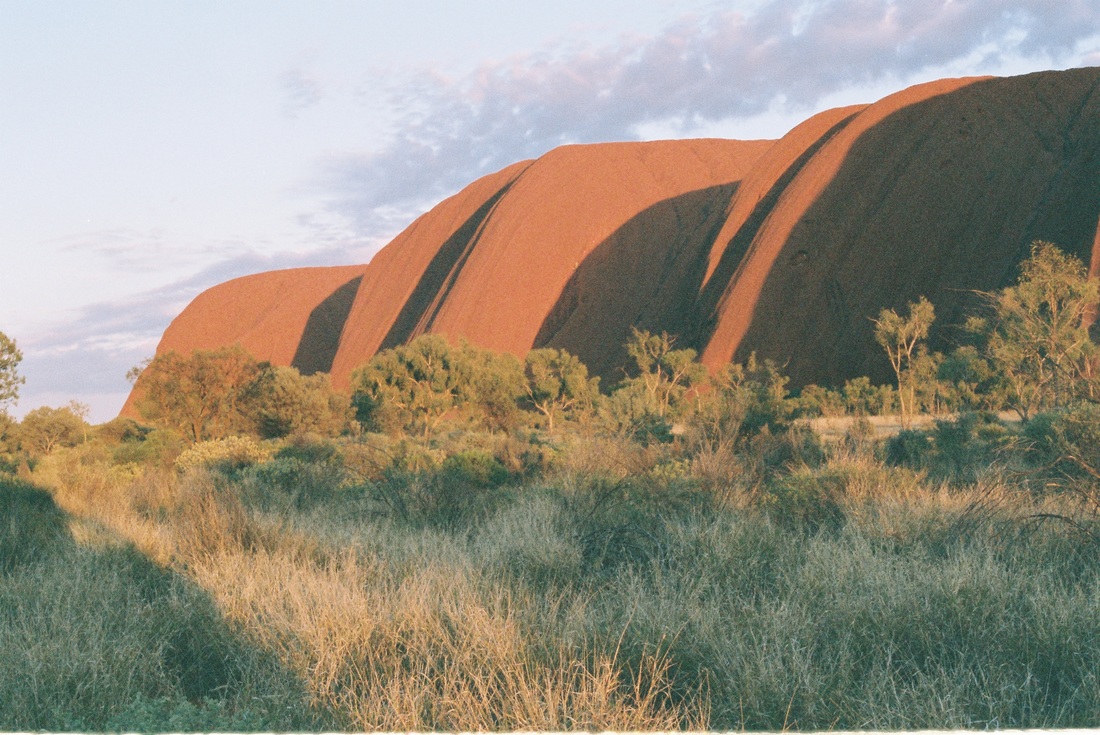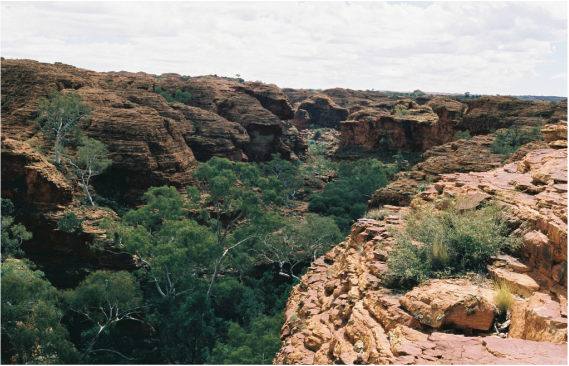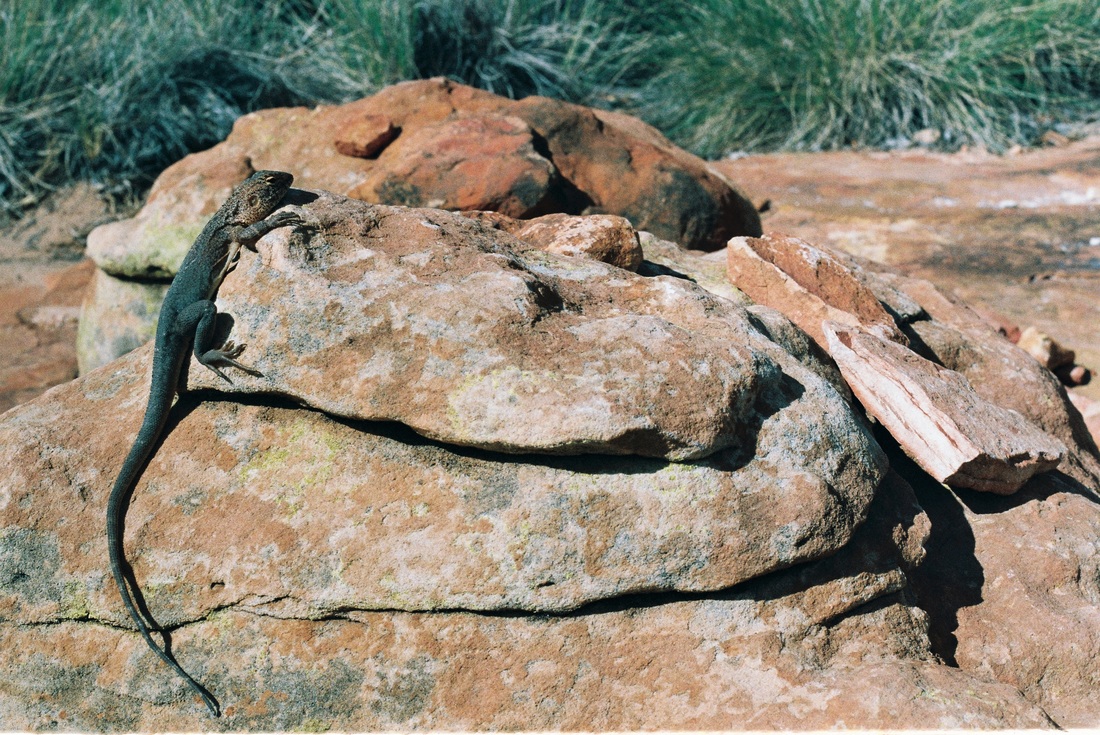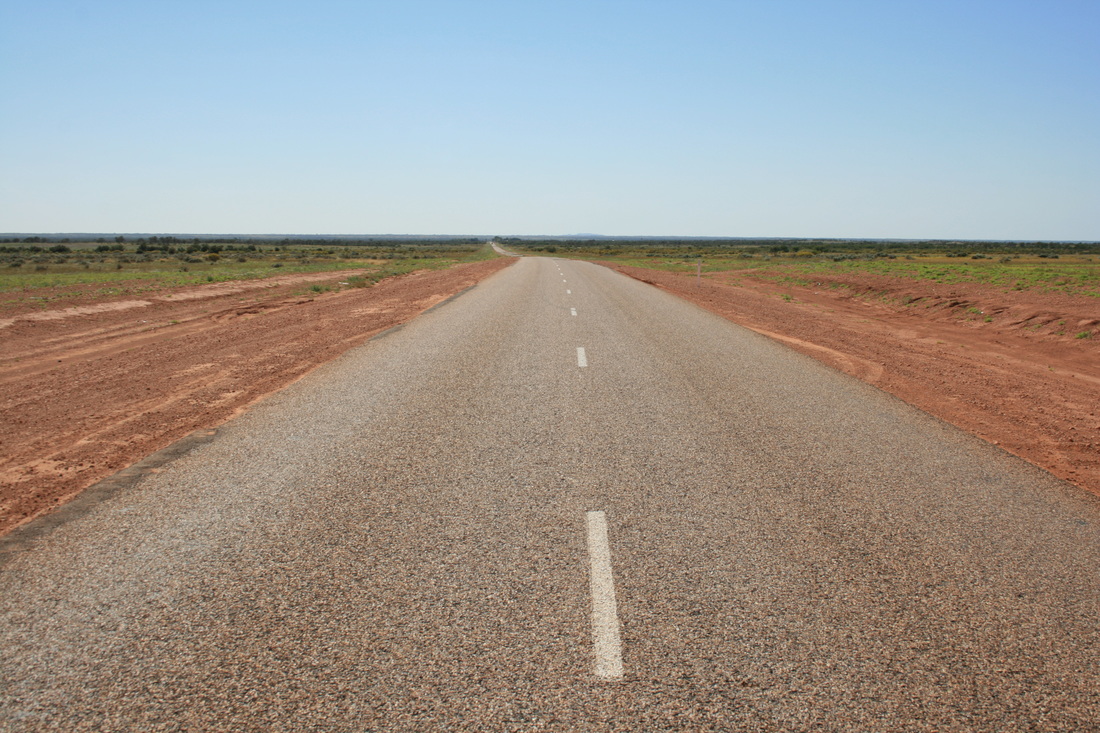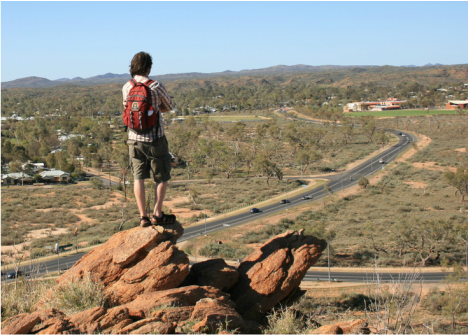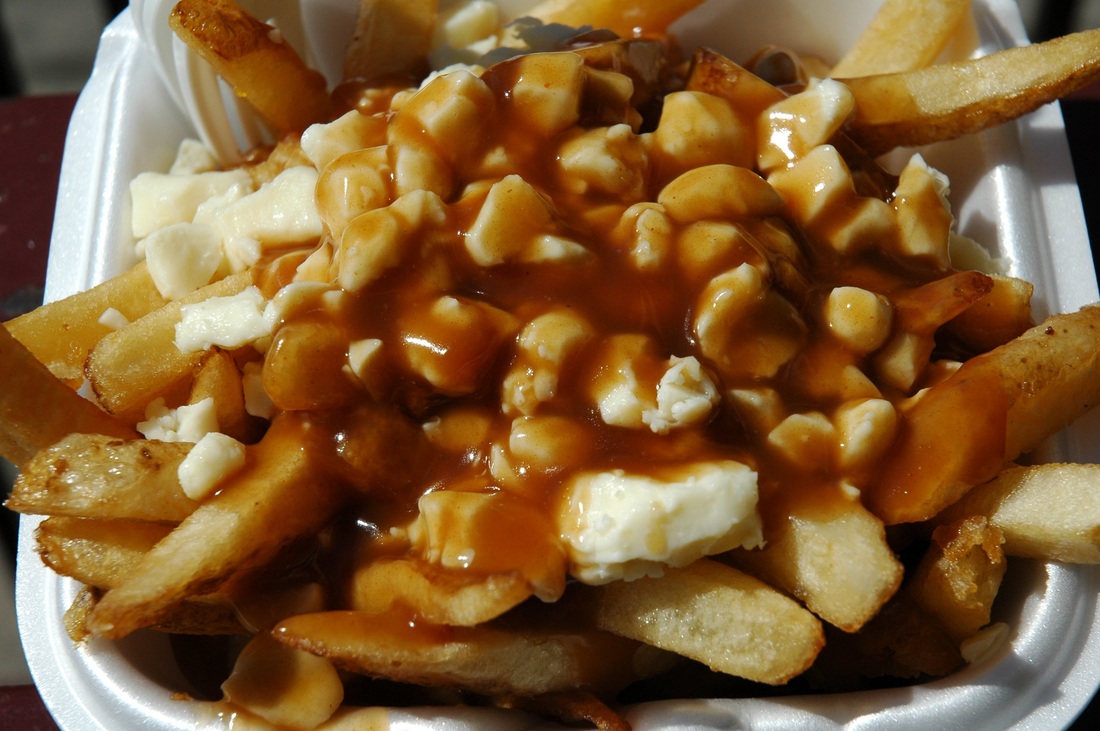July 14th 2016 - Cairns You Dig it?I gracefully land on my knees in a canyon as a plume of sand surrounds me and the rest of the team. The 15ft high walls are teeming with life, some of which stings, some of which bites, all of which is incredibly new to me. I am living the dream. The flying dream. You know the one, right? Where you can go anywhere, and do anything, and are limited only by the amount of air in your tank. Well, I’ve never been limited by air before, so I guess this is a little different. Scuba diving at 18m depths in the great barrier reef allows for endless opportunities for a new diver such as myself. Aside from the challenge of dealing with the physical pressure of being in an environment 2.5 times more intense than the surface, I also need to make sure that I don’t run out of air. The need to breathe is the only sobering reality in what would otherwise be a limitless playground. As much as we humans like to explore out of our natural environment, there are always those important necessities that bring us back to life (and death) no matter how much we think we can live without them: Family, love, oxygen etc. Despite this though, for the 30-40 minutes of available time underwater, nothing compares. Movement in every direction; an abundance of life whatever direction you take.
In Cairns, this seems to be balanced quite well. The idea is that if locals can make money educating travellers about the reef, there is more incentive to protect it. 2000 people a day visiting that world in Cairns alone. 2000 people pumping money into the local economy. It is a gross understatement to say the reef is worth protecting. Of course with 2000 people visiting daily, there is the reality that the wildlife becomes accustomed to a very different pattern. Divers, snorkelers, helicopters, cruising boats, big boats, small boats, and sail boats all have a presence on the reef. Make no mistake, prior to diving there is little silence in the chaos. There is such a presence that the wildlife is familiar with humans, and mostly unafraid. Now this is an easy target to criticize, but what is the alternative source of income for the thousands of locals in the tourist industry. Fishing? Logging? Drilling for non-renewable resources? All of which have their place sure, but when given a choice, what has a lower impact environmentally, and which has longer staying power economically? I am drawn out of my underwater daydream about ecotourism politics by a figure in the deep. It is the same colour as the ocean - grey[1] - and it passes through the ‘canyon’ aka reef opening above my head. It is about the size of a wolf, which is small in this environment. It is a black tipped reef shark, and is calm, and appears almost disinterested in us humans. It is looking for prey, of which we are not. Over the course of seeing the shark, many of us have gone through our air. When you see exciting things, you breathe faster, cool eh? 70psi left, and therefore time to return to the surface, the cacophony of tourists playing water games, and the noise of air compressors and flying machines. [1]At 18m depth the light of the sun’s rays is diluted, affecting the colour spectrum. Many things look grey in this environment to swimming primates. July 17th 2016 - Back to Business in RingwoodTwo days after disembarking the plane, I am going over the necessities of Bearded Dragon Diet, the importance of harvesting Chicken eggs on a semi-daily basis, and some ins and outs on how not to drive a business to the ground in two weeks. Captain Chris is preparing to leave Australia for a vacation in Thailand with his wife Dr. Jess, and small army of children. He is not only trusting me with running the company, but also with feeding their animals, and keeping Aquilla, their Hungarian Vizla entertained. Aquilla and I get along well. My main concern is running the business, and ensuring the reptiles live long enough to see Chris’ return. And not burning his house down while he’s away. I've only done that once though, so I consider it an isolated incident.[1] Although Captain Chris has gone, things have been going well. My client and personell management skills have certainly been tested. As usual, the question of integrity has arisen. Most clients appreciate the value of professional integrity, until they ask you to compromise it for their situation. This is not a new event, and fortunately, I work for a company that recognizes the value of this integrity and will not push to sacrifice integrity for income. Since I’ve had these battles in the past, these situations are pretty easy to resolve ('No sir, I won't lie in a legal document to help your development project go through faster. That would be a crime'). Integrity aside, this is a good week. I even get to practice my autobody repair skills after a foreign worker scratched up the side of the truck. Can’t trust those foreigners, I tell ya. After doing a stint of house sitting for a handful of friends in Melbourne’s eastern suburbs I realize something crucial: I miss the dandenongs. Although a 30 min commute to and from work, the tranquility of the fireplace, and the laugh of the kookaburra have a much higher value than the $50 of gasoline (petrol if you’re an aussie) saved weekly living in the 'burbs. This says something very loud and clear to me, satisfaction is worth more than money (to a point). [1] No, it wasn’t arson. And even if it was, I've been exonerated. 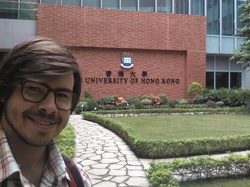 Kowloon 9:30pm I leave the humid busy street and descend a dimly lit flight of stairs into a brightly lit noodle house. It’s clear I hit restaurant gold when everyone is looking at me with curiosity and mild contempt. The mostly clean floors and delicious smell wafting out of the kitchen confirm these suspicions as I take a seat. The menu has no English (odd for Hong Kong), but the pictures show me what I’m getting anyway: Wontons, dumpling soup, and ginger congee with a side of beer and green tea. What should have taken 15 minutes to consume disappears in 10. I pay the 13 dollars before returning to the busy streets of Kowloon. I make my way to the night market where I invariably will pay astronomical prices for Chinese goods, except that I’m in Hong Kong and astronomical prices are still modest and beyond reasonable for what we pay in the west. Especially since we’re buying products made in the same factories. This is the one place in the world where buying Chinese made products is buying local. The trip itself is a whirlwind between a visit to Hong Kong University for research on an article I’m writing, to catching up with my Godmother over delicious roast pigeon, to finding a perfectly desolate Korean bar on Hong Kong island where I spent hours writing. Finding peace on an island as densely populated as Hong Kong is a treasure. Like the abandoned WW2 era bunker that was sitting derelict ten minutes into the jungle from where I was staying. Instead of being transformed into a money making venture, it was slowly being reclaimed by the forest, a testament to a different time. In north America these sorts of buildings are cleaned, refurbished and often turned into a tourist attraction complete with reenactors (I’m thinking of you Halifax citadel).
Subterranean Homes, Salt Flats and SandOne day after returning from the tropical heat of Hong Kong has me, and my friend's Nichita, Janet and Isaac in an Adelaide parking lot practicing our tetris mastery skills while packing a camper van. The van is to be our home for the next ten days and 2000km of bitumen roads. No wild offroading adventures this time around. The trip, will take us through three different ecosystems, which, unless your a nature nerd, would be difficult to distinguish. Fortunately, I love all the plants. Little do my cohorts know the biology lesson they've unwillingly signed on for. Driving out of Adelaide it finally began to sink in that I was in the midst of an adventure that I never thought I'd get to experience. Passing another desert falcon I realize how parts of the outback environment are strangely familiar in their remoteness. If I was back home, driving through parts of Northern Ontario, the vastness of the wilderness is still prevalent, despite the difference in water.... But here instead of endless forests of pine, Australia has spinifex, mulga, and a whole host of desert wildflowers. So, although I am driving through a martian landscape. I am driving through a martian landscape that is experiencing it’s 5 days of flowering per year. Perfect timing as always. There's so much I can say about this road trip, but the truth is, much of what happened there was so impactful, writing about it publicly almost diminishes its value. I have written thousands of words about it in my journals, and several drafts for the blog, but there's few ways I can make that experience funny without diluting it's truth. This realization hi me when I arrived at UIuru. It is a place that is Holy to the Anagu people of Central Australia, and although I don't share their belief, I definitely recognize the spiritual world, and must treat their culture with respect. The way they understand their history, geography, and faith is inseparable. To tell the stories of their past, you must be present at the place they happened. It gives each story much more weight. It makes being there much more valuable than seeing it in a book. As for it being in the 'desert' the area itself is far from deserted. Tourists flock here like crows to an unattended sandwhich. Except that the sandwhich is holy to somebody and the crows don't really understand. An entire economy has popped up around this place, which, as with the Great Barrier Reef, has it's benefits and drawbacks. The fact of the matter is, I went in a different person that when I came out. I knew I would, that's what the desert does to people. It changes them. So instead of slipping a couple jokes into a rant about the environment/government/the illuminati I've decided to post photos from 10 days of reflection and let them speak for themselves. As captivating as some of them are, the truth is, they are wholly understated. Working to get to these places by hiking, driving, or even flying makes them more real, and gives them a value that is impossible to communicate through a simple image. Arriving at UIuru is the culmination of years of work, planning, and prayer. Driving in to the place has made it a very real experience, much different than the option of flying. Seeing the monolith come over the crest of the horizon in the late afternoon sun, I am hit with the realization that achieving this goal means I'll have to find new ones. Little do I know that for the next two months I will be directionless in a way I've never known. Leaving Uluru and Kjata-Tjuta behind, our team heads to Kings Canyon. I found it much more peaceful and interesting than our previous location. Although Uluru was beautiful, and a goal to be reached, it was crawling with tourists who did not understand, or respect, the importance and beauty of the place. Kings Canyon is much more understated, wild, and open. Janet, Isaac and I take 6 hours to do the 4 hour rim walk because we can't resist taking photos at every turn. Even the wildlife comes out for us. As for Alice Springs, it's an awesome town in the middle of nowhere. With rivers of sand (literally) and with the only desert botanic garden in Australia it's a great opportunity to see how to get ornamental trees growing in a place where there's no rainfall. The people were incredibly welcoming, and thanks to them and a friend back home I ended up getting to experience a genuine experience at the Araluen Cultural Center, rubbing elbows with some of the areas artsy elite, while learning Aboriginal history from the people who own it, and live it.
For a town in the middle of a dry desert, it is rich with life and culture. As a boarded the plane back to Melbourne, the town of 26, 000 disappeared into nothing among the vast amounts of wilderness surrounding it. After nearly 1000kms of driving in 9 days, and a lot of space, I had a new perspective. I guess that sometimes you really can get something from nothing.
6 Comments
Hi Everyone! Surprise, I'm still alive! For the ‘thousands’ of you who read this website, I’m sure a handful have probably been asking where I’ve been these last few months. Truth is, I’ve spent the last little while finally digging my claws into the country and culture I’ve come to experience. After spending a good deal hiking through the rainforest in my backyard in April and May I decided it was time to do some travelling, all while taking my job at Greenscene a little more seriously. From July 1st through to the 12th of September, I visited four states in Aus, two countries, looked after three homes, and ran one business (fortunately not into the ground). To keep things interesting I’ve trimmed the fat, and kept the stories short. It’s important to note that the exciting moments in any adventure are punctuated by long moments of work, planning, anxiety, and anticipation. Those don’t necessarily make for great stories, unless of course they’re written by someone who's better at writing than I am (i.e. most people). Despite the incredible amount of learning that has been involved lately, I don’t know how many people are really interested in autobody work, dealing with difficult clients and maintaining professional integrity. So, I’ve put all that stuff in the new ‘For Arbs’ section. Now as for travel, the last few months have consisted of visits to the ocean, a derelict WW2 bunker, and one vast, vast, vast desert. Vast. Buckle in for two or three mediocre blog posts about some great locations. BUT FIRST! An homage to my homeland: Some Canadian NostalgiaAlthough I’m not one to jump on the nationalism bandwagon (in many ways I detest it), I have to say that as our National holiday passed at the beginning of some two months of relative craziness, I came to a realization of many parts of Canadian culture I’ve missed. Besides the forest, the smell of white pine, and our pristine northern lakes, there are a fair few Canadian staples that are absent down under. 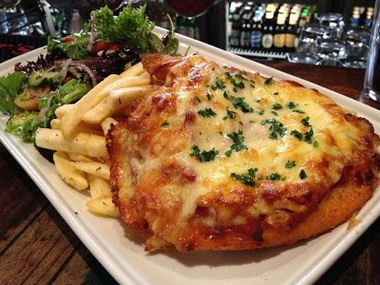 The green stuff means it's healthy. The green stuff means it's healthy. Poutine This one gets the Aussies laughing every time. Whenever I mention my all time favorite food, and the staple Canadian pub food, others can’t seem to wrap their heads around it. Inevitably the poo jokes come out because of the way I pronounce it with my southern Ontario accent. POOTINE AHAHAHA. Cue scatological humour from my Aussie workmates: Why do you Canadians love POO so much? And so on… To be honest, it amazes me that nobody here has figured that fries, cheese curds and gravy go together. Like, seriously Austrialia? How is this such a revolutionary concept. As of late they’ve started to add gravy, but at this rate, I imagine it’ll be the 22nd century by the time they add ingredient number three (that's cheese curds for those of you who have lost count). Of course, cheese curds are a rarity here, so that complicates matters... On the other hand, the Aussies have a delicious pub treat that we don’t have back home, called Parma. Parma is short for chicken parmasean and in it’s simplest form is deep fried chicken schnitzel with tomato sauce and melted cheese. I believe the goal is to cover the piece of chicken entirely so that it's impossible to know whether or not it's just a mound of cheese being served. Delicious, and the variety of flavour incarnations it comes is rivalled only by my beloved poutine. Canadian Slang "Goin’ out fer a rip, eh? Right on! Just giv’r bud. Heck ya, that’s fer shurr! Well we’re not here to make puppies, right?" I never realized how much I said these things (not all at once, usually) until I was the only person saying them. There have been a few instances of miscommunication that have resulted in hilarity and in one case, (almost) near death. Although the stories are pretty interesting, they’re a little much to be published here. Let’s just say there’s a few outback towns I can never go back to. Fair warning, the links in the title contain profanity. French Not going to lie, I miss hearing it, and reading it on every single product and sign. Adding french just makes everything more sophisticated. Our breakfast cereal, toilet paper, and highway signs are somehow classier thanks to this wonderful language (that less than half of the country can speak). 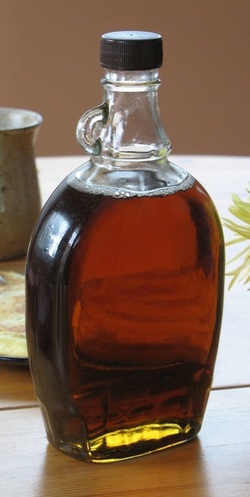 The french word sirop d'érable loosely translates into english as 'Nectar of the Gods' The french word sirop d'érable loosely translates into english as 'Nectar of the Gods' Maple Syrup and related products This is where the maple rubber hits the maple road. Australia has maple products, but not in the amount and variety of goods as it should be. We are spoiled in Ontario and I will never take it for granted again. They have a lot of ‘table syrup’ but that stuff is an abomination. And where's the maple bacon, maple smoked ham, and maple milk? Sadly not in Australia. Regardless, I strongly believe that if the Hebrews would have known about maple syrup, the promised land would no doubt have become known as the land of Milk and Maple Syrup. Enough of this nostalgia, on to adventure tales! Stay tuned for part 2... |
And here we have...The (mis)adventures of a journeyman arborist trying to put skills to good use. Archives
January 2017
Categories |
